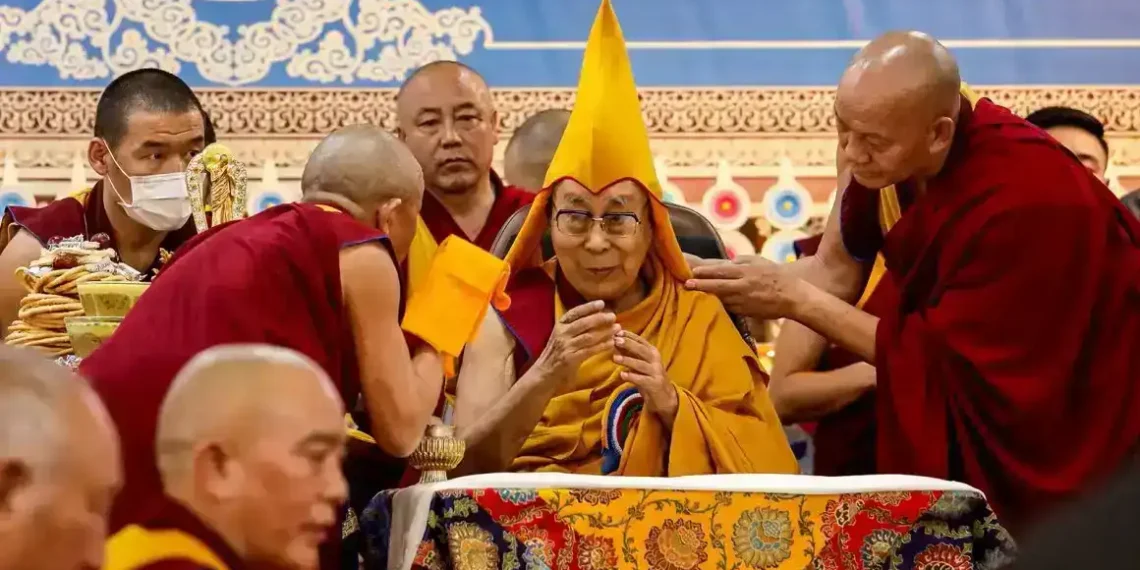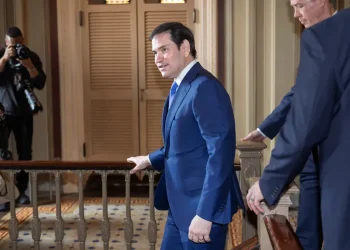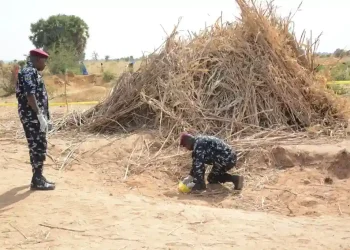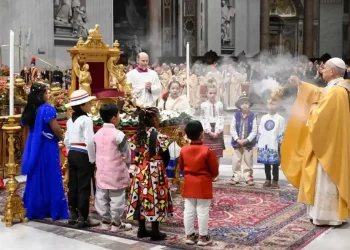Dalai Lama Confirms He Will Have a Successor, Rejects China’s Control Over Reincarnation
As he nears his 90th birthday, the Dalai Lama has made it official: he will not be the last spiritual leader of Tibetan Buddhism.
In a powerful pre-recorded video message shared with religious elders gathered in Dharamshala, India, on Wednesday, the 14th Dalai Lama confirmed that the centuries-old tradition of succession will continue after his death — despite increasing pressure from Beijing to control the process.
“I am affirming that the institution of the Dalai Lama will continue,” he said. “The Gaden Phodrang Trust has sole authority to recognize the future reincarnation. No one else has any such authority to interfere in this matter.”
The declaration reaffirms his commitment to preserving the deeply spiritual Tibetan Buddhist tradition — and sets the stage for a fierce battle over who gets to name his successor.
A Showdown Over Spiritual Authority
The announcement adds fresh fuel to an already simmering conflict between the Tibetan exile community and China’s Communist Party, which has long claimed it alone has the right to approve reincarnations of Tibetan lamas — including the next Dalai Lama.
Beijing responded to the news by reiterating its usual stance: that all reincarnation processes must be conducted in China, in line with Chinese laws and government approval.
But the Dalai Lama, speaking to his global community of followers, made it clear that any attempt by the Chinese government to control his succession will not be recognized.
In his recently published memoir, Voice for the Voiceless, he further emphasized that his reincarnation will be born in the “free world” — not under Chinese rule — and warned followers to reject any candidate backed by the Chinese Communist Party.
A Spiritual Struggle Rooted in Tradition
Tibetan Buddhists believe enlightened teachers like the Dalai Lama can choose to be reborn, continuing their spiritual mission. This tradition, however, has become deeply politicized — especially since Beijing controversially installed its own Panchen Lama (the second-highest figure in Tibetan Buddhism) in 1995.
The Dalai Lama had already recognized a six-year-old boy as the true reincarnation of the Panchen Lama — but the child quickly disappeared from public view, reportedly taken by Chinese authorities. The boy has not been seen since.
Experts say China plans to follow a similar playbook with the Dalai Lama’s succession.
“There’s been a long-term plan to engineer a Beijing-backed Dalai Lama,” said Tibetan historian Ruth Gamble. “China has been cultivating a network of high-ranking lamas within Tibet who will likely be used to legitimize their chosen successor.”
Legacy of Peace, Exile, and Resistance
Tenzin Gyatso, the 14th Dalai Lama, has lived in exile in India since 1959 after a failed uprising against Chinese rule in Tibet. From his base in Dharamshala, he has led the Tibetan exile community, advocated for religious freedom, and promoted his “middle way” approach — seeking meaningful autonomy for Tibet within China, rather than outright independence.
His nonviolent resistance earned him the Nobel Peace Prize in 1989 and global admiration. But it also made him a target of Beijing, which brands him a separatist and a “wolf in monk’s robes.”
Despite his global recognition, the Dalai Lama has long voiced concern over Beijing’s efforts to politicize spiritual traditions — especially those related to reincarnation.
“It is totally inappropriate for Chinese Communists, who explicitly reject religion… to meddle in the system of reincarnation of lamas, let alone that of the Dalai Lama,” he wrote in his memoir.
Tibetan Leaders Push Back
Tibetan Buddhist leaders in exile, gathered in Dharamshala, responded to the Dalai Lama’s statement by issuing a “resolution of gratitude” — and a warning to Beijing.
They “strongly condemn the People’s Republic of China’s usage of reincarnation for political gain,” and vowed to “never accept” a Beijing-appointed Dalai Lama.
Samdhong Rinpoche, a senior official in the Dalai Lama’s office, added that no further details about the search process for the next Dalai Lama would be made public until the time comes.
What’s Next
The Dalai Lama previously said he would reassess the future of his role when he turned 90. With that milestone just days away, he’s made his choice clear: the spiritual torch will be passed on — but only through authentic Tibetan Buddhist tradition.
What comes next could shape the future of Tibet’s culture, religion, and identity. For many, it’s not just about choosing a successor — it’s about preserving a legacy.
This article was rewritten by JournosNews.com based on verified reporting from trusted sources. The content has been independently reviewed, fact-checked, and edited for accuracy, neutrality, tone, and global readability in accordance with Google News and AdSense standards.
All opinions, quotes, or statements from contributors, experts, or sourced organizations do not necessarily reflect the views of JournosNews.com. JournosNews.com maintains full editorial independence from any external funders, sponsors, or organizations.
Stay informed with JournosNews.com — your trusted source for verified global reporting and in-depth analysis. Follow us on Google News, BlueSky, and X for real-time updates.














